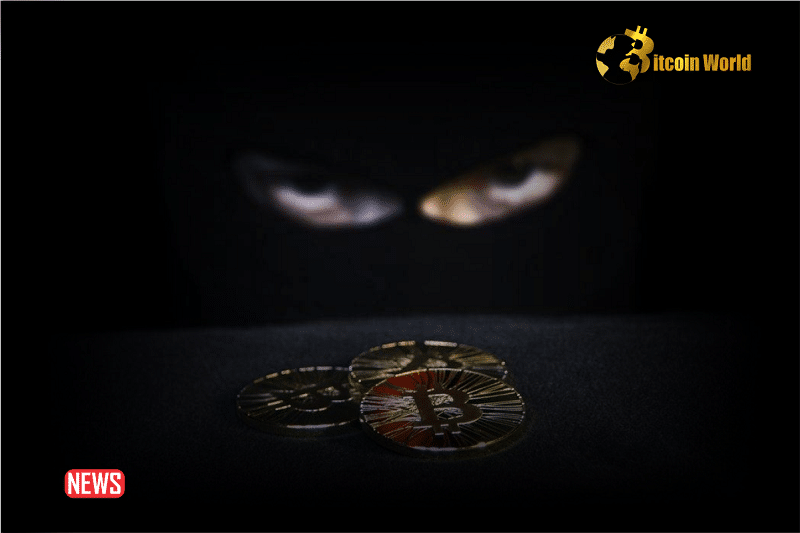Bitcoin, the king of cryptocurrencies, often finds itself in the crosshairs of traditional finance giants. And leading the charge of Bitcoin critics? None other than Jamie Dimon, the CEO of JPMorgan Chase. He’s back in the headlines, reigniting the crypto debate with some seriously strong words. Dimon didn’t mince words, directly linking Bitcoin to a dark underbelly of crime, from sex trafficking to money laundering. Ouch!
But is there any truth to these accusations? Or is this just another chapter in Dimon’s long-standing skepticism towards digital currencies? Let’s dive into the details of Dimon’s latest Bitcoin broadside and explore why he remains such a vocal critic in a world increasingly warming up to crypto.
Jamie Dimon’s Bitcoin Blasts: Crime and ‘Hyped-Up Fraud’ Claims
- Jamie Dimon, JPMorgan’s chief, recently lashed out at Bitcoin, associating it with criminal activities like sex trafficking and money laundering.
- This isn’t new territory for Dimon; he’s consistently called Bitcoin a “hyped-up fraud” and a danger to the established financial order.
- Despite crypto’s growing mainstream acceptance, Dimon remains unconvinced about its legitimacy and practical use.
In a recent interview that sent ripples through the financial world, Jamie Dimon, head honcho at JPMorgan, didn’t hold back. He emphatically stated his position on Bitcoin, painting it as a tool for all sorts of illegal shenanigans. Speaking with Fox Business Network, Dimon’s comments have sparked heated discussions across the internet and within financial circles. It’s clear, the CEO of one of the world’s largest banks is not a Bitcoin fan.
The Bitcoin Controversy: Anonymity vs. Illicit Use
Dimon’s skepticism isn’t a flash in the pan. He’s been a long-time Bitcoin critic, famously dismissing it in the past as a “hyped-up fraud” and even comparing it to a “pet rock.” Strong words from a financial titan!
What’s fueling this negativity? A key concern for Dimon, and many others, is the inherent nature of cryptocurrencies: anonymity and the difficulty in tracing transactions. This feature, while appealing to some for privacy reasons, raises red flags for regulators and traditional finance who worry about its potential misuse.
See Also: BREAKING: US SEC Finally Approves 11 Bitcoin Spot ETFs, Trading Starts Tomorrow
Dimon argues that Bitcoin’s real-world applications are unfortunately intertwined with a darker side – facilitating illegal activities. He specifically points to:
- Sex trafficking
- Tax evasion
- Money laundering
- Terrorism financing
These are serious accusations, highlighting the ethical dilemmas that surround cryptocurrencies. While Bitcoin boasts a passionate community of supporters who champion its decentralization and potential for financial innovation, Dimon’s perspective reflects a significant apprehension within the mainstream financial establishment. It’s not just about Bitcoin’s price swings or speculative bubble potential; it’s about its perceived role in enabling crime, a concern that raises fundamental questions about its legitimacy and the need for stricter regulation.
Economic Storm Clouds and Crypto’s Role: Navigating Uncertainty?
Jamie Dimon didn’t stop at just crypto criticism. He also painted a somewhat gloomy picture of the economic future, voicing concerns about a potential recession.
While some economists talk about “soft landings” and point to resilient housing markets and improved credit access, Dimon remains cautious. He highlights potential economic headwinds such as:
- Depleted pandemic savings
- Persistently high interest rates
- Escalating geopolitical tensions
These factors, according to Dimon, could converge to trigger economic downturns. In this uncertain economic climate, the role and impact of cryptocurrencies like Bitcoin become even more crucial to examine.
Interestingly, even as the US Securities and Exchange Commission (SEC) appears poised to approve Bitcoin spot ETFs – a move seen by many as a major step towards mainstream acceptance – Dimon remains unconvinced. He questions the potential success of these ETFs, pointing to the lukewarm reception of similar products in Canada and Europe. This skepticism is deeply rooted in his broader reservations about Bitcoin’s place in the economy, especially during times of financial instability.
Dimon’s critical view isn’t limited to just Bitcoin; it extends to the entire cryptocurrency ecosystem. Despite JPMorgan itself exploring blockchain technology and even launching its own digital currency, the JPM Coin, Dimon’s stance on Bitcoin remains firm. He’s even gone as far as suggesting government intervention to shut down cryptocurrencies altogether, revealing the depth of his skepticism.
This creates a fascinating paradox: JPMorgan embraces blockchain, the underlying technology of crypto, but its CEO vehemently criticizes Bitcoin. This highlights the complex and evolving relationship between traditional financial institutions and the disruptive world of digital currencies.
See Also: SEC Chair Issues Second Crypto Warning In 24 Hours
Can the financial industry separate the technological promise of blockchain from the ethical and legal challenges posed by cryptocurrencies like Bitcoin? That’s the million-dollar question.
The Bottom Line: Ethics, Innovation, and the Future of Crypto
Jamie Dimon’s recent remarks on Bitcoin are more than just a CEO’s opinion; they represent a critical perspective on the intersection of finance, technology, and ethics. As cryptocurrencies continue their journey into the mainstream financial landscape, the debate surrounding their role, value, and societal impact is only set to intensify.
The path forward requires careful navigation from all stakeholders – the banking sector, regulators, and the cryptocurrency community itself. It’s about finding a balance between fostering innovation and ensuring responsibility, addressing ethical concerns, and establishing clear regulatory frameworks. The conversation sparked by Jamie Dimon, however controversial, is a crucial part of this ongoing evolution.
Disclaimer: The information provided is not trading advice. Bitcoinworld.co.in holds no liability for any investments made based on the information provided on this page. We strongly recommend independent research and/or consultation with a qualified professional before making any investment decisions.
Disclaimer: The information provided is not trading advice, Bitcoinworld.co.in holds no liability for any investments made based on the information provided on this page. We strongly recommend independent research and/or consultation with a qualified professional before making any investment decisions.




